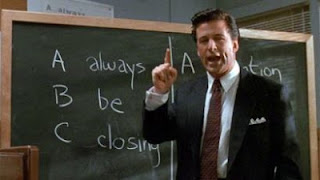Working online has always been a challenge for those us susceptible to the lure of shiny objects. Social media is the biggest damn time vampire known to man, and when I'm working for clients there's that constant reminder that there are friends, colleagues, and acquaintances begging for me to comment on their posts or correct their grammar. Here are a few tricks I use so that I don't end up wasting my day looking at cat videos when I should actually be doing the shit I'm there to do.
Set Out a Schedule
When I need to do something, no matter how mind-numbingly trivial, if I'm not going to nail it there and then I put it on my schedule. I refer to my schedule every time I finish a group of tasks when I think "what's next", or if I need to look busy because someone's caught me gawking at Pinterest with my mouth open like a fish. There a billion micromanager and reminder apps out there (and I've tried a lot of them) but I just use Google Calender fed by Mac Reminders on my iPad, iPhone, and Mac Book Air. It's free, easy, decentralised, and it's a big help for my notoriously fallible sieve-like memory (a man's gotta know his limitations). Retrospectively this also acts as a good log of what's been achieved in a day, and anything that doesn't get done by 5.30 get's dragged into the next available slot.
Stay On Target
cut the chatter
I have a personal rule of 50/10. I work for 50 minutes. Then go make a brew, abuse Twitter, smoke by the bike sheds, stare at some new Facebook app, check Pair to see what the spouse/cat is up to, watch dubstep videos with My Little Pony characters in them, or whatever for 10.
Also, I don't multi-task. The concept that 'multitasking is awesome' is a myth perpetuated by people who sell self-help business books. It's weapons-grade horse do-do. I do one thing at a time (I like to think reasonably well) not 4 things (half-arsed). I do something until it's finished, then I do another thing. Sure, sometimes that not always possible, but I break big tasks into smaller tasks (usually with dependencies being stop points that need external action from others) and it keeps me on track. Doing one thing at a time doesn't mean I'm not thinking about other things as well, but I concentrate on one task at a time, whenever possible. You may have a mutant power that lets you juggle plates - good for you - but that's not me. For more on this, I recently read
this great post by Mr. Tony Schwartz, writer of 'Be Excellent at Anything', which is worth a look.
Track Time
a necessary evil
Working for an agency I have to log client hours anyway, so it's not rocket science. We use
Harvest, which is easy and there are apps for the hard of understanding. I don't micro-manage this. I'm not obsessive, and I group stuff (a couple of client emails, booking a meeting room, working on a Keynote for a campaign pitch, can all be bundled together under 'meeting prep' if it's the same customer). It does, however, help keep me on track when I know I only have 2 slots of 30 minutes a day allocated for each client to check their social channels, respond to questions, and create/compose something fresh before looking at the next one. No time for love, Doctor Jones.
Eat a High Protein Lunch
Seriously. It stops me getting hungry mid-afternoon and stops my mind wandering. Chicken or fish is good, but keep it light. I'm also a big fan of regular coffee (though any sources of caffeine with antioxidants - like chocolate - works just fine) and it helps info retention. Personally, I favour the protein and caffeine and avoid the sugars. Each to their own (which is why I run the company tuck shop). Not
too much coffee, there's a balance - jitters and needing the loo all day is counterproductive.
Ignore Stuff
There are always people who approach you with "can you just". Most of the time, yes, I can squeeze in 5 minutes to give an opinion or my advice, it's my job, but sometimes I genuinely can't. When I say "not right now" I've already set as president and it MEANS "not right now". From past history people know I'm serious.
I don't constantly check pages, but I do get information delivered to me. For example, I use the Pages app on the iPad which updates and flashes up when someone posts onto one of the Facebook Pages I manage. It's on the screen for 2 seconds, and I keep it docked next to my main monitor at work - if it's important it'll get my attention, if not it gets ignored 'til later.
NB: The power of listening to (productive) music or podcasts on headphones here is obvious - not only does it stop people hassling you for no good reason and with the day-to-day office fluff, it also saves on ambient distractions and cocktail party syndrome.
So there you go, that's my suggestions. No doubt there's more, but I'd say
scheduling,
targeting, and
tracking are the main ones. What we do professionally isn't personal, but it is social. We have to make the distinction to make the most of the time we have available. It's a job we're doing after all, a client is paying for our time, it's not a...
...OMG!
Ponies!




















